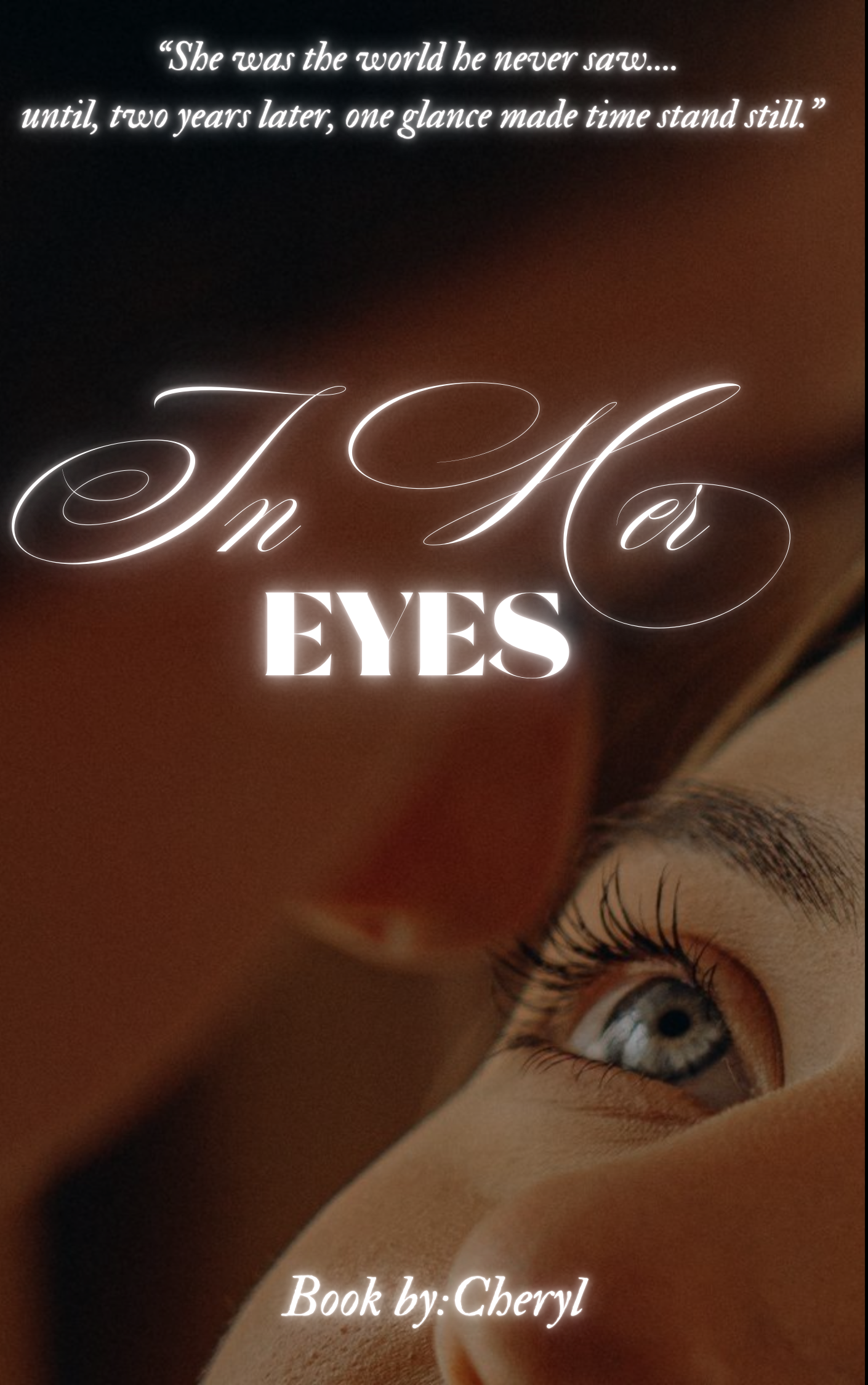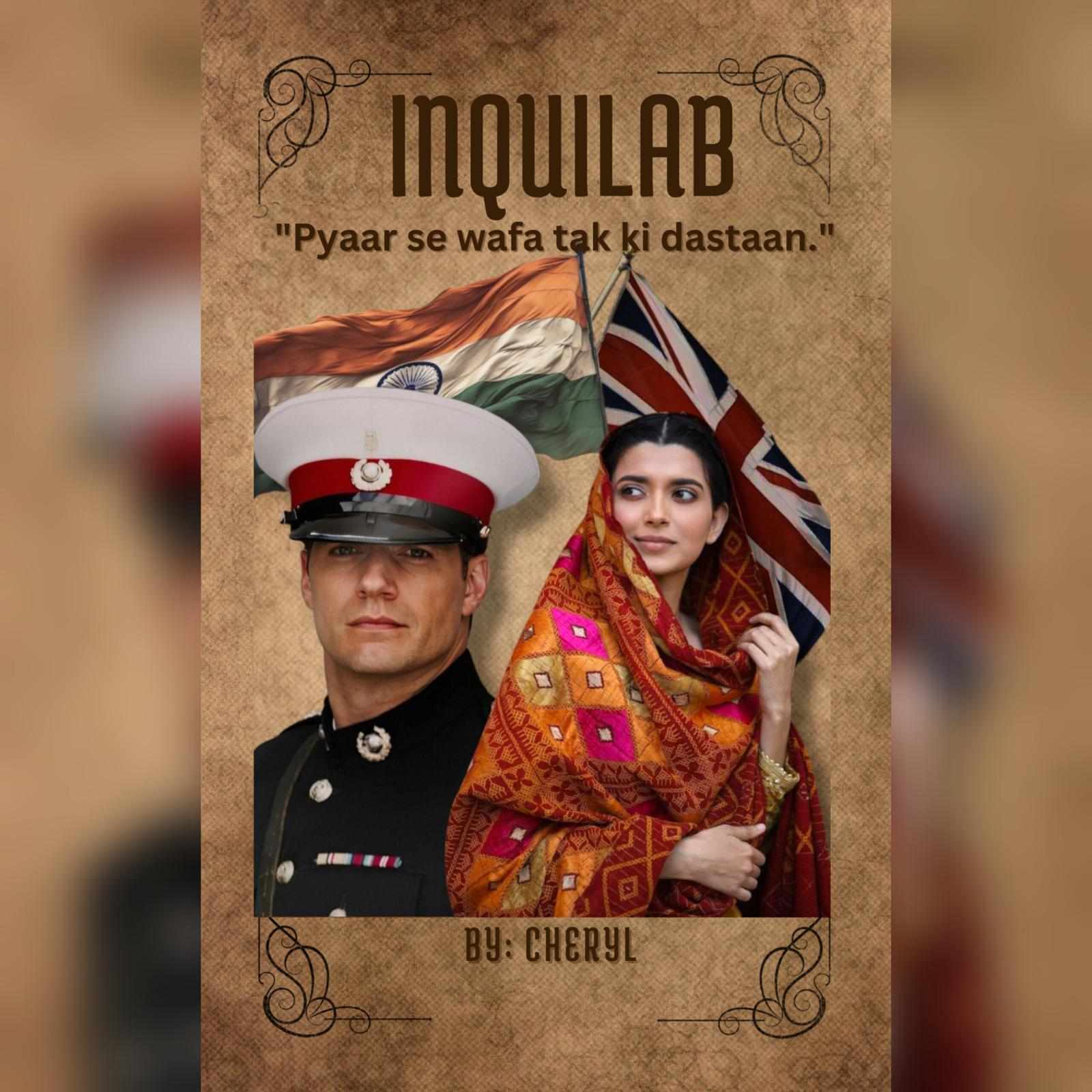
Days passed into weeks, but the air inside Rajawat Haveli had changed.
Nothing was said aloud, not by Kulbhushan, not by Naintara and yet the silence carried the weight of everything that was left unsaid.
Since that morning in the temple, a certain stillness had settled over the house. Naintara still performed her chores like she always did, sweeping the veranda at dawn, lighting the lamps in the tulsi courtyard at dusk, preparing her father’s tea but her hands moved slower now, her eyes lingering on small things, as though trying to memorise a world she feared she might have to leave.
At meals, Kulbhushan would often look up as if to say something, then stop himself. And Naintara, her eyes lowered, would quietly refill his plate without a word. This was how they spoke, not through questions and answers, but through small gestures and careful silences.
It wasn’t in her nature to speak openly.
Girls like Naintara didn’t grow up telling their fathers about the storms inside their hearts. They learned to smile through them, to pray them away, to fold them neatly like letters they would never post.
But her eyes, those soft, almond shaped eyes betrayed everything.
Sometimes, Kulbhushan would find her standing by the window of her room long after dusk, watching the village road disappear into the horizon. Other times, she would linger a little too long by her mother’s photograph, her fingers gently brushing the wooden frame before turning away.
He knew what all this meant.
She was afraid. Afraid of leaving the only home she’d ever known. Afraid of a future she could not picture. Afraid, most of all, of what would become of the man who had built his entire world around her.
She is afraid for him more than she is for herself and yet, she never once said the words.
One cold evening, as the sun dipped behind the mustard fields and the air grew heavy with the scent of smoke from village chulhas (hearth), Kulbhushan found her sitting by the temple inside the haveli. Her favorite place in this entire house.
She was on her knees before the small idol of Krishna, her hands folded, lips moving silently in prayer.
He stood quietly at the doorway, watching her. She looked so small, so delicate and yet there was something strong about the way she sat there, as if gathering courage from the very God she prayed to.
“Naintara!” He called her softly.
She startled slightly and turned, her dupatta falling a little over her face as she lowered her gaze. “ji, Bauji,” she whispered, rising quickly to her feet.
He placed a hand on her head gently, a touch that said far more than words ever could. “You have been sitting for a long time.”
She only nodded.
“You must be tired?” he asked quietly.
A small shake of her head. “Nahi, Bauji.”
He wanted to say something more, to tell her that no decision had been made, that her happiness would always be his only concern but the words caught in his throat. Instead, he simply patted her cheek with a faint, bittersweet smile.
“Come on, let's go inside. It's getting cold out there,” he said, his voice steady but his heart trembling.
And just like that, the conversation ended as conversations between fathers and daughters so often did in those days, in silence, in unspoken promises, and in a love too deep to need explanation.
The morning newspaper still lay untouched on the swing in the courtyard, exactly where Kulbhushan had left it before heading out.
Naintara was passing through the veranda when a sudden gust of wind swept through, scattering its pages across the ground.
She rushed to gather them, kneeling on the cool stone floor and that was when she saw it.
A photograph.
And a name printed boldly beneath it.
Shekhar Raichand.
The name that shook the walls of Naintara’s carefully sheltered world.
She stared at that photograph for what felt like an eternity, her fingers trembling as they hovered over the letters.
The man whose father had sat in their living room.
The man for whom her hand had been asked in marriage.
She didn’t know what to feel. Pride was not something she could claim.
It was confusion, thick, disorienting, and heavy that filled her chest. He looked so far removed from everything she had ever known: sharp-suited, powerful, the kind of man who commanded the world with a glance.
And she… she was just Naintara.
A girl whose entire world revolved around her father.
A girl who still whispered her fears to the gods before bed.
Naintara quietly set the newspaper down on her father’s chair in the living room and returned to her daily chores, but her mind refused to quiet.
That evening, the haveli was unusually silent. Most of the servants had left early to attend a wedding in the village, and Kulbhushan was still out at the far edge of their farmland, supervising the labourers.
Naintara sat in the veranda, embroidering a dupatta by hand. The only sounds were the soft rustling of leaves and the distant chatter of birds. It was peaceful, almost fragile as if the slightest tremor could shatter it.
And then, it did.
The peace was ripped apart by the sudden roar of motorbike engines outside. Three. Then four. Then five.
Before she could react, the heavy clang of the gate echoed through the courtyard, making her flinch. She was alone, completely alone and there were strangers outside.
They were large men, coarse and rough, their eyes sweeping over the house like predators sizing up prey. One of them, a man with a jagged scar down his left cheek, stepped forward with a smirk that froze her blood.
“So this is the famous Rajawat palace?” he sneered. “Doesn’t look so grand to me.”
Naintara quickly rose to her feet. “Who are you? Whom do you want to see?”
The man’s grin widened, and his companions laughed.
“We’re not here to meet anyone, memsaab (madam),” he said, his voice dripping with mockery. “We’re here to collect. Tell your father that the land papers should be ready by tomorrow morning. For Mr. Maheshwari.”
“B-Bauji isn’t home…” Naintara’s voice trembled.
“Good,” the scarred man stepped closer, his eyes crawling over her. “Then listen carefully. If the papers are ready by tomorrow morning, everything will be fine. If not…”
He let the sentence hang, stepping even closer, close enough for her to smell the bitter stench of tobacco on his breath. She instinctively stepped back.
“…then we won’t come here for the land. We’ll come for you.”
The blood drained from her face but still she managed to say. “P-Please… go away…”
The second man laughed and kicked over a flower pot near her feet. The crash made her cry out in fear.
“Ah!”
“Your father’s quite stubborn,” he hissed. “Let’s see how much fight is left in him tomorrow.”
One of them grabbed the dupatta she had been embroidering and ripped it apart, scattering threads and cloth across the floor. “Beautiful things are easy to sell, memsaab,” he said darkly. “This land will sell too.”
Before they could come any closer, a shout rang out from the lane.
“Oye! What the hell do you think you’re doing?”
Neighbours….men and women came rushing in at the sound of Naintara’s scream, carrying whatever they could find: sticks, iron rods, even kitchen ladles.
They had watched Naintara grow up before their eyes, and in Kulbhushan’s absence, they had always looked out for her like their own.
Seeing the sudden crowd, the goons hesitated but only for a moment. Then their leader spat on the ground, his cold eyes locking on Naintara.
“Tomorrow morning,” he said again, his smile cold. “The land…. or the girl.”
The words made Naintara’s very soul shudder. Her knees gave way beneath her and she collapsed in the courtyard, trembling violently. Women from the neighbourhood ran to her, gathering her into their arms as she sobbed uncontrollably.
Just then, Kulbhushan appeared in the lane, returning home from the fields.
“Look, here comes the father!” the leader jeered, his tone filthy. Kulbhushan’s heart pounded as he took in the scene, the strangers at his gate, his daughter crying in the courtyard and he ran forward.
But before he could reach her, the goons blocked his path. One punched him hard in the stomach, another struck his face. Kulbhushan crashed to the ground wincing in pain.
“Tomorrow morning,” one of them hissed before they left, “Sign the land over to Mr. Maheshwari. Or we’ll come back and we’ll take your daughter.”
And then they were gone, their engines fading into the night.
“Bauji! Bauji!” Naintara screamed as she ran to her father, who lay crumpled on the ground.
“I’m fine, beta,” Kulbhushan tried to assure her as he struggled to stand. But his aging body had no strength left after the beating.
Sobbing, Naintara helped him up, but to Kulbhushan the shame burned deeper than the pain. A father’s duty was to protect his daughter yet here he was, broken and helpless before her eyes.
Neighbours rushed to help, carrying him back into the courtyard and seating him on the swing.
Naintara fetched water, her hands shaking as she held it to his lips. His hand trembled too, no matter how hard he tried to hide it from her.
And Naintara’s tears, no matter how hard she tried to stop them, would not cease.
Kulbhushan pulled his terrified daughter into his arms and held her close as she cried uncontrollably.
The neighbours told him everything, every word of the threat, every insult hurled, every filthy remark.
He clenched one fist tightly while the other gently stroked her hair. “Forgive me, my child,” he whispered. “I couldn’t protect you…”
“Kulbhushan ji, what good is land when your daughter’s honour is at stake?” one of the villagers said. “Sell it. Live in peace.”
And they were right. In villages like theirs, nothing stayed secret. Everyone knew how far men had gone to get that piece of land.
“Thank you,” Kulbhushan said softly, folding his hands. “Thank you all for looking after my Naintara when I couldn’t.”
One by one, the neighbours left until the courtyard was empty again.
Kulbhushan went to close the haveli’s gate. When he turned back, Naintara was standing before him, her hands folded, tears streaming down her cheeks and her petite body trembling in fear.
“Bauji… I don’t want anything,” she cried. “I just want you safe. Please, sell the land. I don’t want it.”
“Naina!” Kulbhushan rushed to her, taking her folded hands into his own and pulling her into a tight embrace.
“Sell it, Bauji,” she sobbed like a little girl. “I just want you safe.”
And so did he. The very land he had guarded like a treasure for his daughter’s future had now become the greatest threat to her honour.
He somehow brought her inside and gave her water, but she continued to cry, unable to stop.
And beside her, Kulbhushan sat drowning in helplessness and shame.
Many had offered to buy that land before. But one of them had sent a proposal. Others had sent threats.
But now, one man has sent both.
Maheshwari, a gangster disguised as a businessman and now there was only one thing Kulbhushan cared about: keeping his daughter safe before dawn.
“Naintara… get up, beta. We need to go somewhere,” Kulbhushan suddenly said, rising to his feet.
“Where, Bauji?” she asked, lifting her tearful eyes to him.
“Just come,” he said, heading for the door. Naintara stared after him in confusion.
He brought out their old car and came back for her.
“Come, beta,” he said gently. “We must leave before sunrise.”
“But Bauji…”
“Trust your helpless father one last time, my child,” he said, resting a trembling hand on her head. “Your safety is all that matters now. And there is only one man who can protect you from Maheshwari.”
With that, Kulbhushan led her to the car, and together they began their journey.
Today, people reached the house while he was still alive… but what if tomorrow he’s no longer there? What will his innocent daughter do all alone in this world?
He has to choose someone, someone who can protect and care for her when he no longer can. And in that moment, only one name keeps circling in the mind of that helpless father, the one man he believes can keep his daughter safe, not just while he’s alive, but even after he’s gone.
For the first time since the proposal had been made, the thought stopped feeling like a burden and started feeling like a shield.
Maybe…just maybe… General Jagdish Raichand was right.
Maybe the world was too dangerous now for someone like Naintara to survive in it unprotected. Maybe the only way to keep her safe was to tie her fate to someone powerful enough to crush men like Maheshwari with a single phone call.
By the time the lamps flickered out and the village left behind at night, Kulbhushan Rajawat had made up his mind.
Not because he wanted to part with his daughter.
But because he could no longer bear the thought of losing her.
Delhi’s night carried a different kind of silence, heavier, taller, edged with the hum of a city that never truly slept. By the time the old Rajawat car left the highway and slipped into the tree-lined avenues of Lutyens’, the clock had long crossed midnight.
Naintara had cried most of the way, not loudly, not the kind that breaks rooms but the small, steady kind that breaks a father’s heart. She kept her head bowed, dupatta pulled close, her hands knotted in her lap as streetlights slid across her face like fleeting ghosts.
That scene still plays over and over before her eyes, the moment those goons beat her father and threaten him.
Their words keep echoing in her head, refusing to fade away.
The car slowed. Gravel crackled under the tyres. When she finally lifted her gaze, it was to an iron gate taller than any she’d ever seen and beyond it a mansion washed in soft amber light, columns, arches, a sweep of steps that seemed to go on forever.
“Bauji…” her voice was a thin thread. “Where have we come?”
“Where you will be safe,” Kulbhushan said, his own voice roughened by fear and resolve because right now only General Raichand’s promise was echoing in his mind and telling him only he can save his daughter.
The gate guards stepped forward at once, hands raised. Kulbhushan was out of the car before they could speak.
“I am Kulbhushan Rajawat,” he said, steadying himself. “I need to see General Jagdish Raichand. It’s urgent.”
One guard looked him over, the dust on his kurta, the blood drying at his lip, the desperation that made dignified men forget protocol and then nodded, disappearing inside the guard room to make a call. Moments later he returned, posture changed.
“Please come in, sir,” he said with respect. “General sahib is awake. He will see you.”
Kulbhushan turned back to the car. “Beta,” he said gently, “stay here. I won’t be long.”
She nodded, small and obedient, clutching the edge of her dupatta. He followed a guard through the gates, across the forecourt, and up the steps where light pooled like warm water.
Out by the driveway, the night folded in again.
Naintara sat in the car with her hands folded, silently praying to her Madhav to make everything right, while tears streamed down her cheeks, unstoppable, uncontrollable.
A second set of headlights swung in from the avenue, gliding to a stop a few spaces away. The sleek Mercedes cut its engine. The door opened.
Shekhar stepped out.
For a heartbeat he simply stared, another car in his drive at this hour, a slim silhouette inside, shoulders shaking with quiet sobs. The dupatta hid her face, the night kept her features, but grief had a shape and he recognised it.
He turned to the guard. “Who’s here?”
“Sir,” the guard replied, straightening, “a Mr. Kulbhushan Rajawat. He’s with General sahib.”
The name struck his mind. Shekhar’s mind clicked through the land he wanted desperately because Kulbhushan was the stubborn owner who had refused to give it to him.
Then what is he doing in his house at this hour?
That question made Shekhar's brows crease and without another word, he moved, long strides, up the steps, into the hall.
And there he stopped.
Because in the centre of that quiet, high-ceilinged room, a man stood before his father, hands folded, eyes wet, voice breaking as he tried to speak and failed while General Jagdish Raichand looked at him with the sympathy, which Shekhar had seen for the first time on his father's face.
And that made Shekhar’s breath lodged in his throat.
At the gate behind him, a girl in a trembling dupatta wiped her eyes with the back of her hand, unaware that the world she feared had already turned to face her.














Write a comment ...